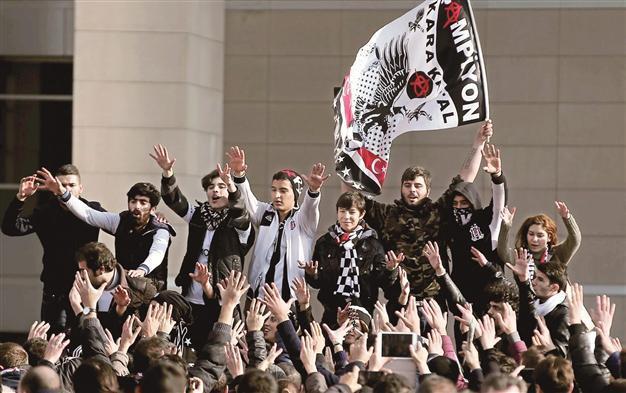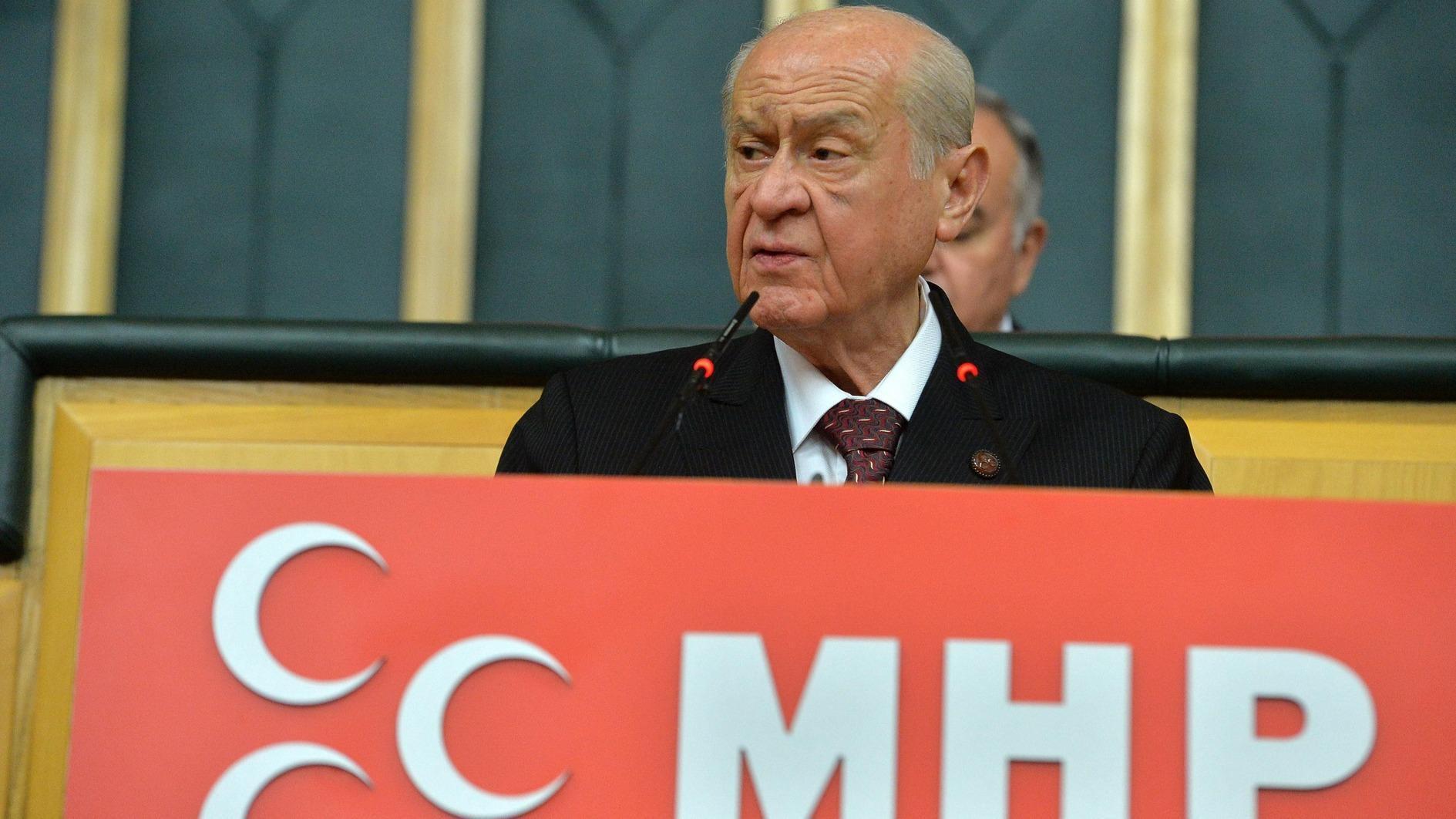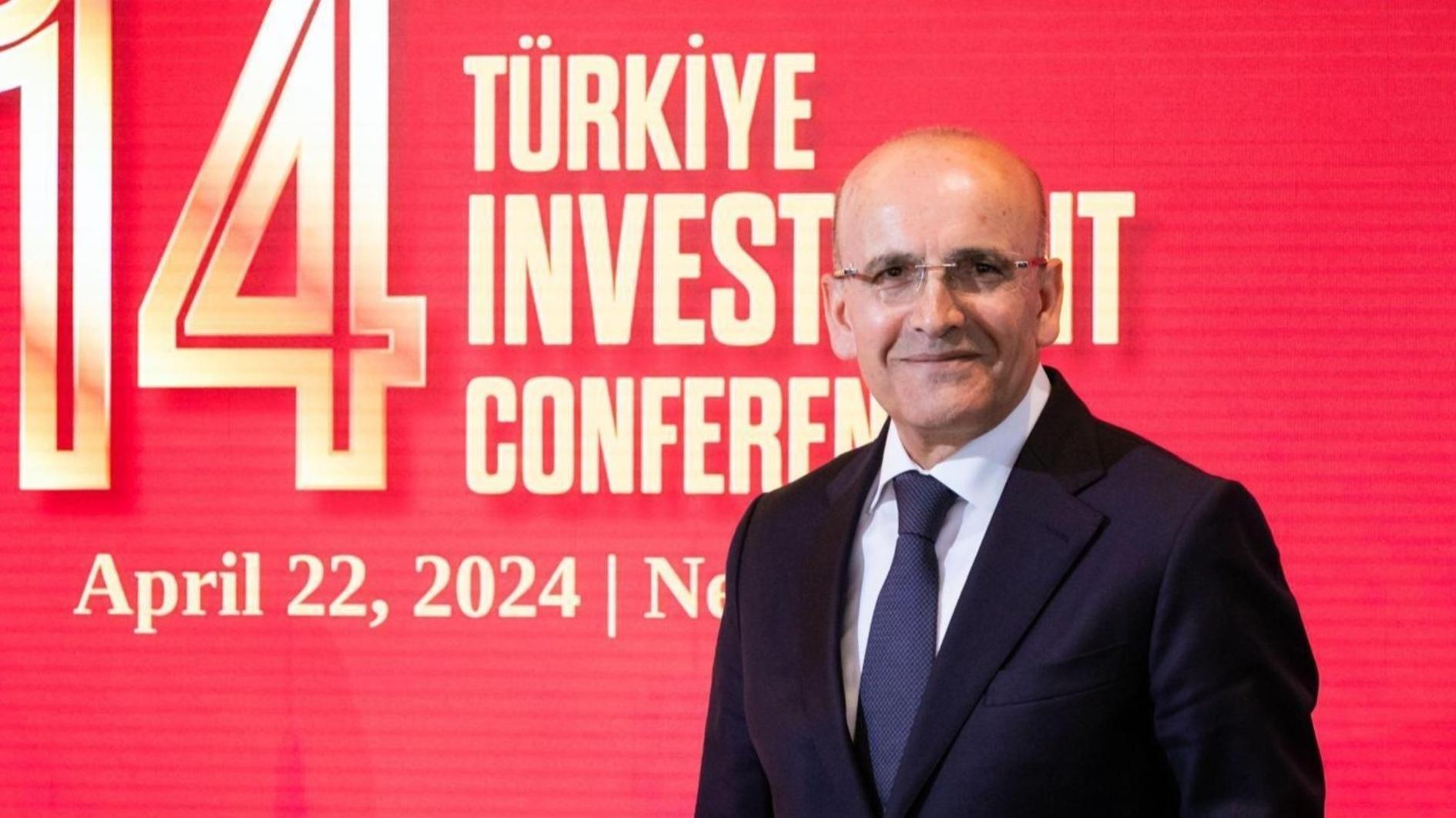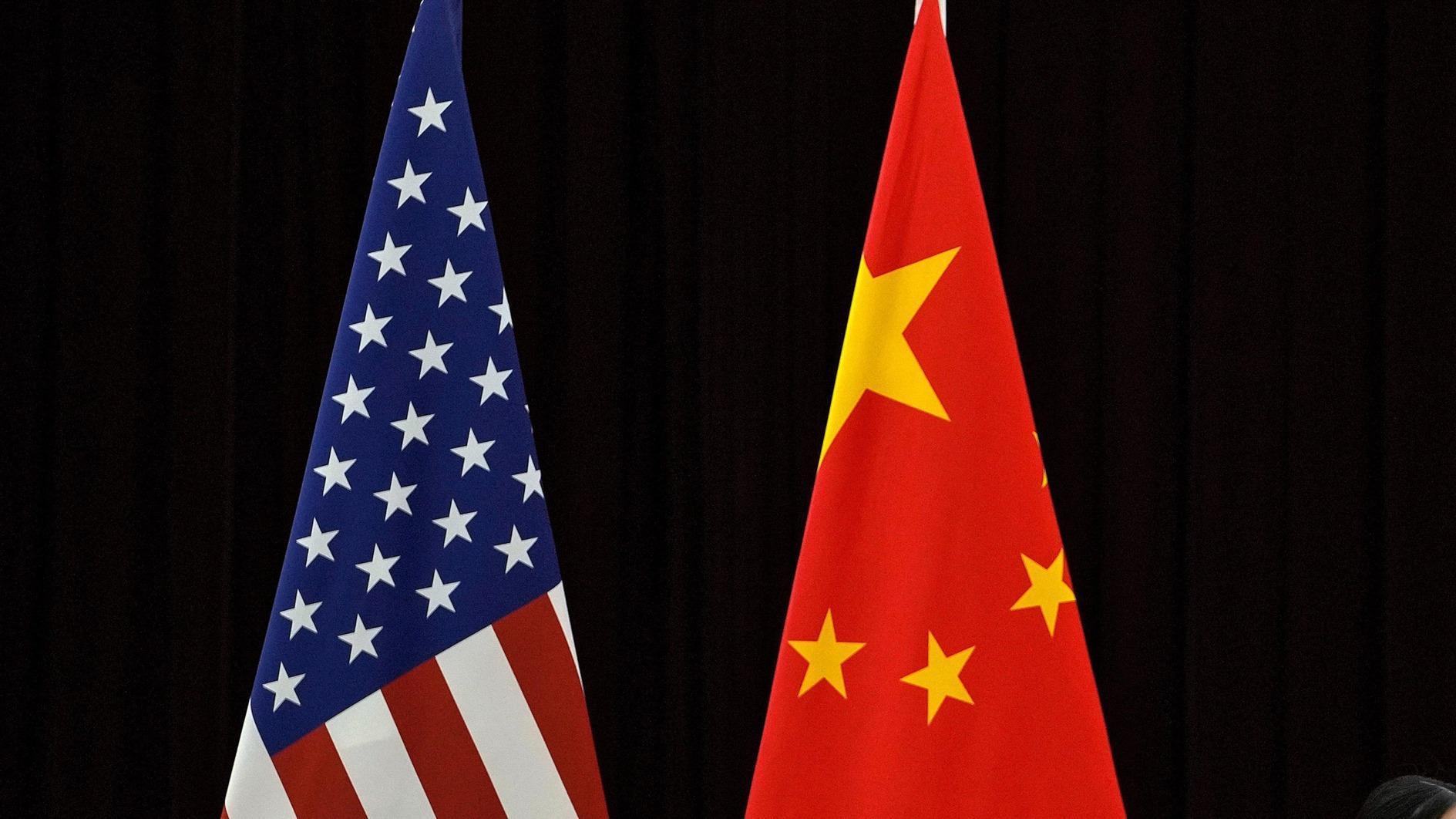Egypt and Turkey see gov’t and fans battle in court and on pitch
James M. Dorsey

Cheering fans of Başiktaş, a leading Turkish football team, gather outside an Istanbul courthouse where dozens of football fans were tried on attempted coup charges because they took part in mass protests last year. AP Photo /Emrah Gürel
Egyptian and Turkish football pitches are set to re-emerge as battlegrounds between ultras and authoritarian leaders in a life-and-death struggle that involves legal proceedings to brand the supporters as terrorists and efforts to undermine their widespread popular base.Egyptian fans, barely a week after storming a Cairo stadium in advance of an African championship final, have vowed to break open Egyptian premier league games that have been closed to the public for much of the past four years. Fans played a key role in mass anti-government protests that toppled President Hosni Mubarak in 2011.
Similarly, a nationwide boycott of a government electronic ticketing system in Turkey viewed by fans who were prominent in last year’s Gezi Park protests against the country’s leader, Recep Tayyip Erdoğan, as a way of identifying them and barring them from stadia has so far all but defeated the effort.
Probes heat up struggles in Egypt, Turkey
The struggles in Egypt and Turkey are heating up with criminal legal proceedings against militant fans or ultras in Cairo and Istanbul. In Istanbul, a trial has begun against 35 members of çArşı, the nationally popular support group of storied club Beşiktaş JK, accused of belonging to an armed terrorist organization and seeking to overthrow the government. The proceedings were postponed until April after a first day of hearings.
In Cairo, courts are hearing a series of cases initiated by the head of the Egyptian capital’s al-Zamalek SC, Mortada Mansour, a controversial fixture from the Mubarak era and close associate of General-turned-President Abdel Fattah el-Sisi, charging that the club’s militant support group, Ultras White Knights (UWK), are terrorists who sought to assassinate him. Denying the allegations that led to the arrest of scores of UWK members, the group has dubbed Mansour “the regime’s dog.” UWK leaders have gone into hiding to evade security forces. The charging of the Turkish fans follows several ongoing court proceedings against other protesters in which prosecutors were also seeking harsh sentences.
The cases were being prosecuted by a judiciary that, like the police force in the past year, has largely been cleansed of alleged supporters of Fethullah Gülen, a frail, self-exiled 73-year-old preacher that was the head of one of the world’s largest Islamist movements and one-time Erdoğan ally before being accused of seeking to create a parallel state in Turkey.
The legal proceedings in Istanbul and Cairo are part of an effort by the Egyptian and Turkish governments who, despite differences over the Muslim Brotherhood, both see cracking down on militant football fans as a pillar of their campaigns to severely restrict if not outlaw peaceful protest and dissent.
A vow by Ultras Ahlawy, the militant support group of Zamalek Cairo rival al-Ahly SC, to force their way into stadia where Egyptian premier league games are played came a week after they stormed Cairo’s International Stadium to make their point. It also came as Ultras Nahdawy (Renaissance Ultras) played a key role in months-long student protests on university campuses and in local neighborhoods in Cairo against el-Sisi’s regime and in favor of academic and other freedoms.
Nahdawy, whose name refers to the term used by the Brotherhood to describe its political and economic program, is the only militant football group that openly identifies itself as political and is not aligned with a club. The group, formed by Ahlawy and UWK members who sympathized with the brotherhood that has been brutally suppressed by the el-Sisi regime and outlawed by Saudi Arabia and the United Arab Emirates, has since distanced itself from the group. Its leadership consists largely of university students while its rank and file are often still in high school. “We took the culture of the ultras in the stadiums and tried to copy and paste it into the street,” a Nahdawy member and al-Ahly supporter told The Los Angeles Review of Books.
For a regime that has shown little mercy for its opponents, the el-Sisi government has balanced its tacit backing for the legal proceedings against UWK with a more deft approach to Ahlawy that holds the military forces responsible for the death of more than 70 of its members in a politically loaded brawl in 2012 in Port Said.
Negotiations with ultras
Rather than confronting the ultras when they recently stormed the stadium, security forces negotiated their departure as well as their attendance under a temporary lifting of the spectator ban for al-Ahly’s match against Ivory Coast’s Sewe Sport. The game earned al-Ahly the African club championship title. Ahlawy unfolded a huge banner during the match that, referring to the ban, asserted “Football is for Fans.”
In a statement on the Facebook page, which has 1.1 million followers, Ahlawy said: “The fans have every right to be present in stadiums and cheer on their teams.”
The security forces’ response to Ahlawy’s insistence on attending matches will serve as a litmus test of whether their decision to negotiate rather than confront the fans before the African match constituted an exception in a successful bid to ensure that the game would take place or whether it signals the first softening of el-Sisi’s policies. The e-ticket boycott, the court cases and the battle for stadium access all are elements of a struggle by militant football fans in Turkey and Egypt for their existence in an environment in which some, particularly in Egypt, feel that their options are being cut off with violence one of the few alternatives left.
















